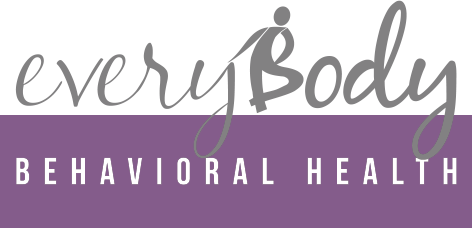Individual Therapy
Learn more about
Individual Therapy
Our team at everyBody Behavioral Health prides ourself with being genuine (we are real human beings and will be real with you), compassionate, empathetic (understanding of your feelings), and trusting. Research shows that the therapeutic relationship is one of the most important factors in healing. Our approach to treatment is collaborative, meaning that we will work with you to identify goals and guide you towards reaching them. At the same time, we are focused eating disorder specialists and we provide evidence-based treatment to help you recover and improve your health. We will meet you where you are and guide you in the direction of what we know works.

How will everyBody Behavioral Health work with me?
Initial Assessment
A member of our team will first meet with you and get to know you to understand the current symptoms and where you feel “stuck”. We will gather information about your eating, activity, weight history, social history (family, work, relationship, upbringing), the role that food and body played in your family, etc. We will then make recommendations and work with you to collaboratively put together a treatment plan.
Goals
Our goals are to help you feel “unstuck,” recover, and improve your overall physical and emotional well-being. We will help you understand what may have contributed to the problem as well as what factors may be maintaining it. Sometimes what caused the initial unhealthy relationship with food, eating, weight, or body image, a long time ago, is very different than what is maintaining it.
Length of Treatment
Typically, we meet with patients weekly (but this is flexible upon the needs of each patient as some people need more or less frequent support). As treatment progresses patients transition to every other week, and then monthly, until they graduate from treatment. The ultimate goal is for patients to manage their eating and weight alone and to feel better without our assistance.
Examples of treatment targets:
- If you binge eat or emotionally eat or feel out of control, we may discuss the specific triggers that lead to a binge eating episode. Then, you can learn to prevent the trigger if possible or learn alternative ways of managing it. Triggers can include events, isolation, relationships (positive or negative), feelings (stress, anxiety, boredom, loneliness, excitement), physical sensations (hunger, PMS, tired), unhealthy (and maybe untrue) thoughts.
- If you tend to make unhealthy food choices, we may discuss why these choices are made, barriers to making healthier choices, and solutions to prevent this cycle from continuing.
- If you sabotage yourself, we may identify the unhealthy self-talk from within and formulate healthier ways of thinking, feeling, and behaving: “I just blew it, I may as well get the extra large serving;” “I’ll never lose weight, what’s the point;” “Nobody is going to find me attractive like this!” “ I’ll start over on Monday.”
- If you restrict your eating, we may look at your anxiety about eating and weight and take steps to challenge this. Or, we may look at what the eating disorder does for you and how else you may meet your needs.
- If you purge or compensate for what you have eaten, we will identify the triggers to your purging and ways to resist it.
- If you are underweight or malnourished, we will work to restore your weight in a healthy way.
